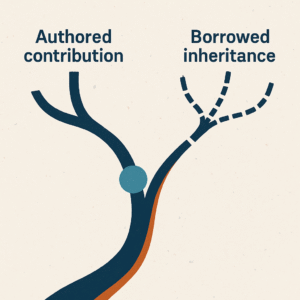Introduction: Defining Exploitation Across History and Society
Exploitation, a complex phenomenon, permeates the historical and contemporary landscapes of labor, power, and society. Each author—Tocqueville, Foucault, Stopford Green, Weber, and Arendt—offers a distinct perspective on this pervasive issue, revealing the intricate interplay of moral, economic, and social forces that sustain it.
Tocqueville on Exploitation and the Moral Fabric of Labor
Tocqueville’s exploration of American society highlights a stark contrast between the industrious North and the languorous South, where slavery’s moral degradation casts a long shadow. The institution of slavery not only dishonors labor but also corrupts the moral fabric of society, burdening individuals with a compromised conscience. In the South, the chains of servitude bind both the enslaved and the enslaver, fostering a culture of idleness and ignorance. Tocqueville warns that even in the North, where labor is honored, the specter of exploitation looms as wealth and excess threaten to erode the moral foundations of liberty. His call for equitable labor practices and moral education underscores the necessity of addressing exploitation to preserve societal integrity.
Foucault on Power, Labor, and Systemic Exploitation
Foucault delves into the systemic nature of exploitation within labor relations, where power dynamics are both the engine and the veil. Institutions perpetuate exploitation by normalizing practices that reduce workers to objects within the machinery of capital. Despite oppressive structures, Foucault emphasizes the agency of the exploited, who navigate these terrains with subversive cunning. His assertion that “power is not an institution, nor a structure; it is the name we give to a complex strategic situation in a particular society” encapsulates the intricate interplay between power and exploitation, urging a critical analysis of the structures that perpetuate inequities.
Stopford Green on Colonial Narratives and Irish Subjugation
Stopford Green’s examination of English exploitation of the Irish underscores the manipulation of language to obscure power dynamics. The myth of Irish ingratitude serves as a colonial sleight of hand, shifting blame from oppressor to oppressed. This narrative masks the deep economic disparity constructed to ensure the perpetual subjugation of the Irish. Green’s vivid imagery—”the ledger of exploitation is written in the ink of Irish blood”—highlights the need to dismantle these narratives and recognize the historical truths that challenge colonial myths.
Weber on Speculative Capitalism and the Ethics of Wealth
Weber’s critique of speculative capitalism reveals the ethical implications of wealth accumulation at the expense of labor. The relentless pursuit of profit transforms human beings into mere cogs in the machinery of economic gain. Weber’s assertion that “in the ledger of capitalism, human dignity is often an expendable line item” underscores the moral imperative to prioritize human dignity over profit. The struggle against monopolies and the ethical implications of money-lending are not merely economic issues but profound ethical indictments.
Arendt on Labor, Alienation, and Human Dignity
Arendt’s exploration of exploitation as a persistent specter haunting history emphasizes the paradox of labor as both a means to survival and a source of alienation. In the modern age, homo faber, the user, finds himself entrapped in an instrumentalization of existence, where creation is subsumed under production. Arendt challenges us to reassess the value of labor beyond its economic function, advocating for environments where human dignity transcends exploitation.
Comparative Perspectives: Agency vs. Systems in Exploitation
The tension between these authors’ approaches lies in their differing emphases on agency and systemic structures. Tocqueville and Weber focus on moral and ethical dimensions, urging societal reform and integrity preservation. In contrast, Foucault and Stopford Green emphasize the systemic nature of exploitation and the manipulation of narratives. Arendt bridges these perspectives by highlighting the existential implications of exploitation. Ultimately, Foucault’s focus on agency amidst systemic oppression offers a more empowering framework, recognizing the potential for resistance and change within oppressive systems.
Actionable Decision Rules to Address Exploitation
- Prioritize Human Dignity in Economic Practices: Implement policies and practices that place human dignity at the forefront of economic decision-making, ensuring that labor is valued beyond its utility and that ethical considerations guide profit pursuits.
- Critically Examine and Dismantle Power Structures: Encourage critical analysis of existing power structures and narratives that perpetuate exploitation, fostering environments that empower marginalized voices and promote equitable labor practices.
Lineage and Influences
This “On Exploitation” essay drew inspiration from the works of:
- Tocqueville, Alexis de
- Foucault, Michel
- Stopford Green, Alice
- Weber, Max
- Arendt, Hannah







